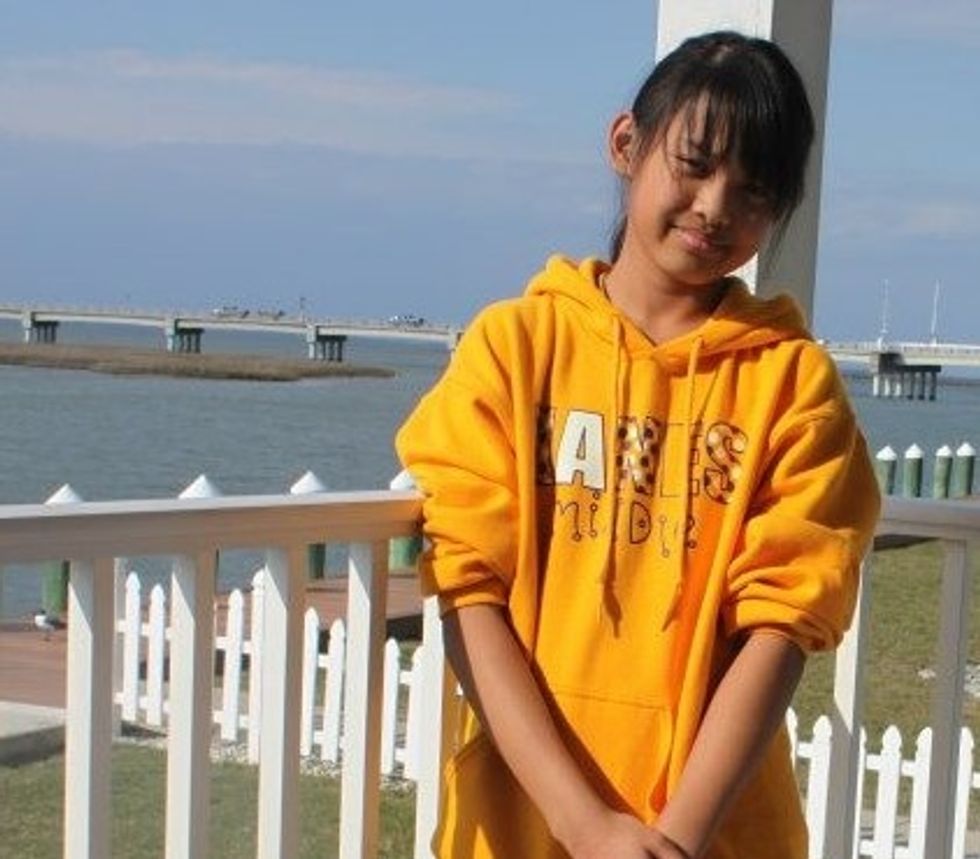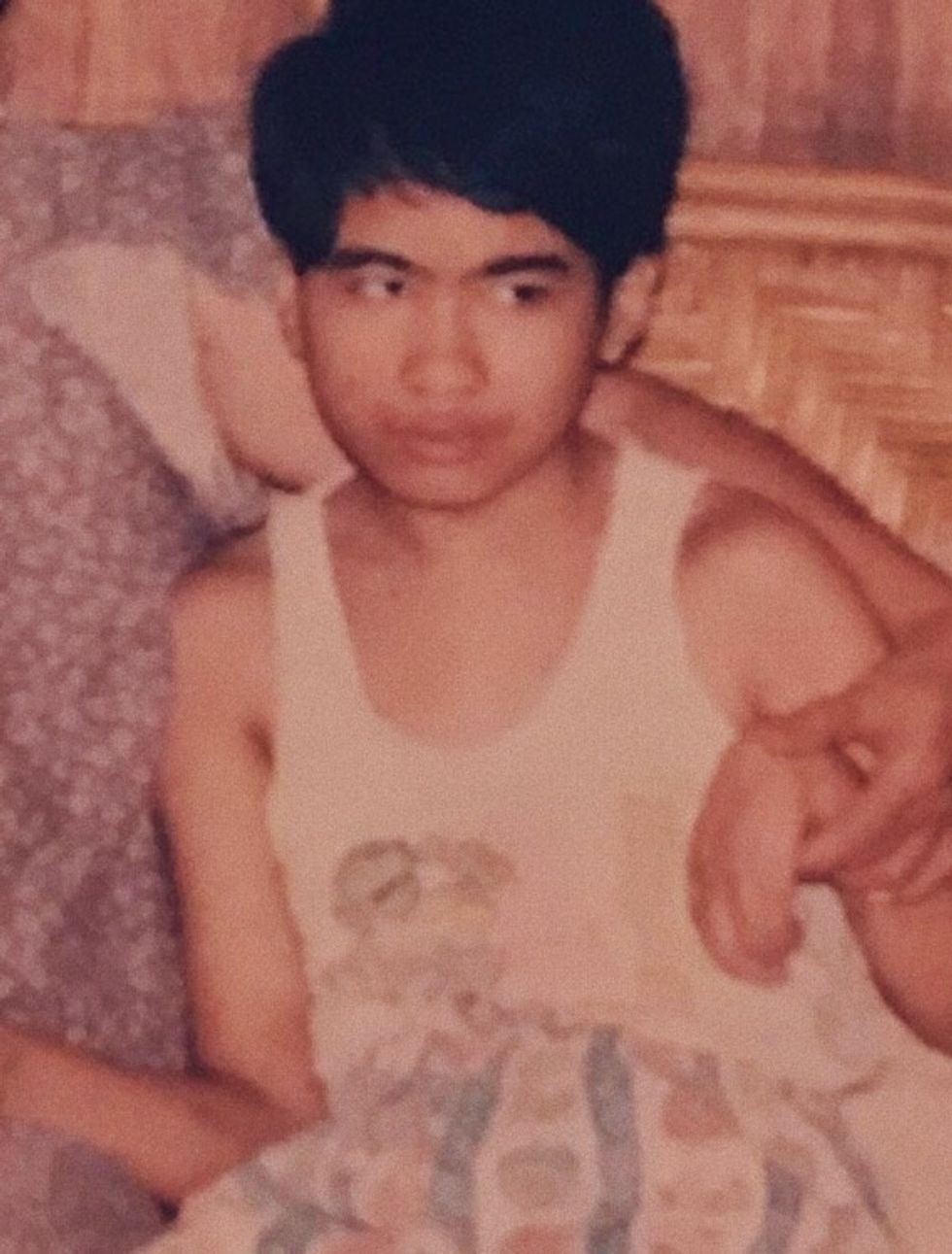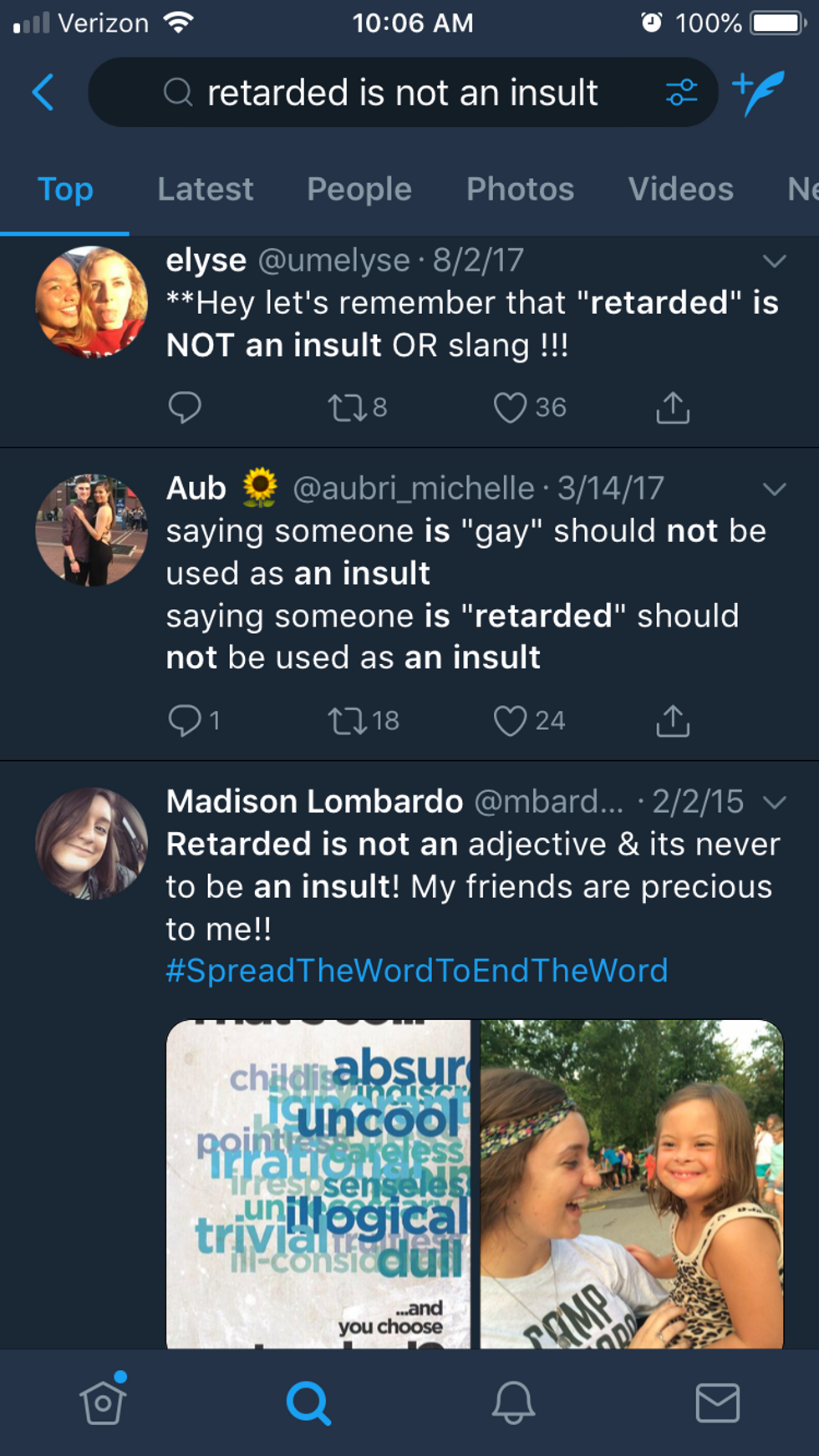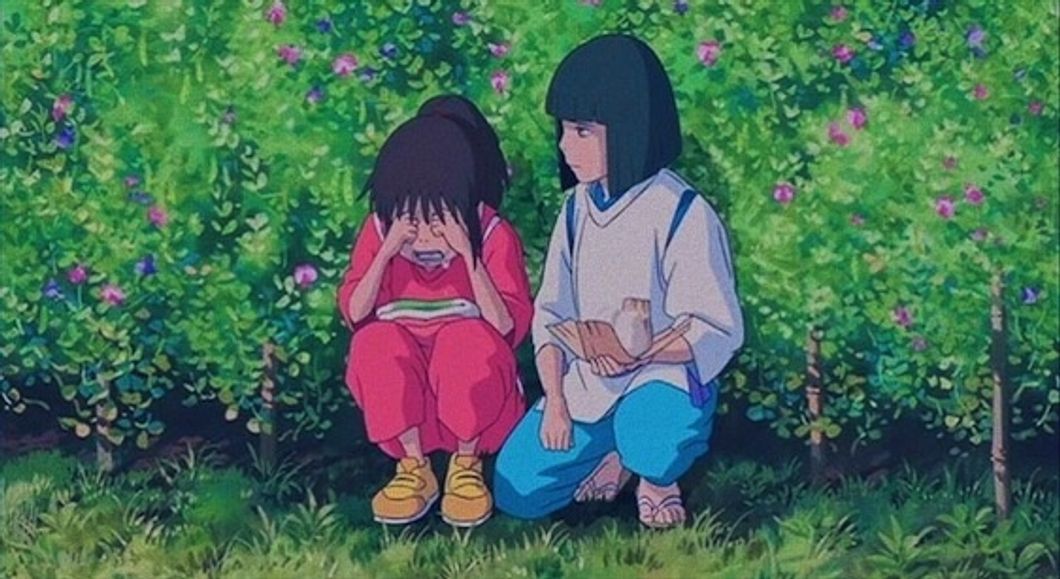The first time I heard the word "retarded" was in the fourth or fifth grade. Something one of my friends did or said made another kid say, "Dude, what the heck, are you retarded?" The rest of the class seemed entertained by the remark, and without a teacher present, the laughter was especially loud. I ended up laughing along with everyone despite having no idea what the word meant.
I learned the meaning of the word shortly after, so to quickly define "retarded", it describes the state in which someone has a disability or developmental delay that affects them physically, socially, intellectually, or emotionally. However, this did not seem to be the same meaning that was of common use throughout school.
After elementary school, I realized how the tossing around of this word only became more common. It was especially bad when I was in middle school, which is ironic because the school I went to, Hanes-Lowrance Middle School, was the fusion of a public middle school and a special education program. It was common for some of the special ed students to be integrated into our classes. Classes weren't anything new or different with them, yet despite their presence, my peers were still ignorant enough to keep spitting out "retarded" as a joke.

What was most horrid was that these peers mimicked and made fun of how the special ed students talked and behaved. While walking to lunch in the seventh grade, someone would walk out of line and start hobbling to mock the passing special ed students. They would also cause a scene with spastic movements and exaggerated guttural noises, then they would walk back in line while snickering to themselves like it was the funniest thing on Earth.
I was most sensitive to how peers used the word and acted on it in the eighth grade. I was assigned a family history project, and while I was interviewing my mother, she ended up telling me a lot about the life of my aunt who lived with disabilities. From infancy, my aunt was inflicted with encephalitis, an infection that caused brain swelling and developmental impediments. Because of this, my aunt needed assistance with daily things like getting dressed, eating, and bathing throughout her life. She also struggled in self-expression through speech. I distinctly remember one moment with her when I was still very little: We were sitting and laughing together, but suddenly she pinched my arm so painfully that it made me burst into tears. I went to my parents to snitch, but my mother told me, "She's just having fun with you."

Learning about her was when my eyes were truly opened to how disrespectful it was to use "retarded" in such negative context. No, it may not directly affect me, but any state of retardation does affect others in ways we cannot understand, and their lives should not be taken lightly or used as comparisons for insults. As with my aunt, these same people struggle to do day-to-day things on their own that we are blessed to have the ability to accomplish independently. Who are we to taunt them and degrade them for that?
The beginning of high school wasn't much better, but I worked on mustering up enough confidence to tell others not to use the word when they did. Most responses I received were negative as I was told that one word really didn't matter or harm anyone, so why did I care? Although no one who told or heard the "joke" or "insult" may have been immediately harmed, there was still the matter of sensitivity and respect that needed to be addressed.
Of course, I realized that many who used "retarded" incorrectly didn't intentionally mean to take the lives of those living with disability lightly. They simply did not know what it meant or how it was disrespectful. I also grew conscious of how much energy I used just to stay bitter about others misusing the word. Why not use my energy to turn those moments of misunderstanding into moments to educate instead?

Considering how young I was when all of this was happening, I think it is most important to start better educating our younger siblings, children, and other youth about matters such as this and to be wary of words we use. We carry what we learn as children throughout our lives, so we should teach the young ones about respect and sensitivity toward those around them. Unless we are in another person's shoes, we won't know what they are going through, so when in doubt, always show, give, and speak with kindness. A single act of kindness or respect can go a very, very long way.
















